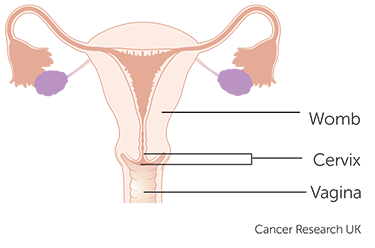A study of the attitudes of trans men and non-binary people to screening for cervical cancer
Cancer type:
Status:
Phase:
This study was open to trans men and non-binary people who have a cervix or have had their cervix removed.
A trans man is a person who was assigned female at birth but identifies and lives as a man.
A non-binary person is someone whose gender identity doesn’t sit comfortably with ‘man’ or ‘woman’.
This study was open for people to join between August 2019 and October 2019. The team published the results in 2021.
More about this trial
The cervix is part of the reproductive system. It is the neck of the womb at the top of the vagina.
Cervical screening is a test (smear test) that checks the health of the cervix. The test looks for any changes (abnormalities) of the cells of the cervix.
The aim of cervical screening is to reduce the number of people who develop cervical cancer. An abnormal test means that the person can either have further tests. Or a doctor might remove the abnormal cells.
Anyone with a cervix between the ages of 25 and 64 years old can have cervical screening. You need to be registered as female with your GP to automatically receive an invite for screening.
The researchers wanted to find out:
- the views and experiences of trans men and non-binary people about cervical screening
- what factors stopped them from having cervical screening
They hoped understanding their views and experiences will make cervical screening easier. And that it would make it more available to them in future. This might include making changes to the NHS’s policies on screening.
Summary of results
The team identified some:
- factors that affected whether this group of people would have screening
- possible changes to make to the screening system
They hope that these can help improve cervical cancer screening and can improve a person’s experience.
Study design
137 trans men and non-binary people replied to an email invitation. They filled in a questionnaire. The questions asked about:
- their attitudes to cervical screening
- their sexual history
- their cervical screening history
- their views on cervical screening
Results
Of the 137 people who took part:
- 109 people identified themselves as trans men
- 24 people identified themselves as non-binary
48 of the 137 people felt they had enough information about cervical screening. And what it meant for them.
Of the 64 people who were eligible to have an invitation for cervical screening:
- 37 had cervical screening
- 24 people had delayed at least once
- 8 people had never received an invitation
The barriers they identified were:
- identified as male in health records
- experience or anticipation of shame and discrimination
- a feeling of unease that their biological sex doesn’t match their gender identity
- a fear of having their identity uncovered
- poor understanding of their health needs
- the use of female terms in the screening information
- unhappiness, dissatisfaction and frustration about the screening process. This included the invite, the information and how they received their results.
Areas that would help improve their experience included:
- clinics with specialist transgender services
- having non specialist health care people who were helpful when they had the test
- improving screening information
- able to do the test themselves
- able to access a call and recall system
The study team concluded that we need to know how many trans men and non-binary people need screening. Improvements in how to record gender identity and trans status will help to do this.
This would benefit the trans population by:
- generating needs assessments
- being able to carry out research
- designing better services
Recruitment for this trial was at gender identity clinics and trans healthcare services. The team say that with the proper strategies in place researchers could do a larger trial. They would like to include people who don’t go to:
- gender clinics or
- specialist trans healthcare services
Jo’s Cervical Cancer Trust has information about cervical screening for trans men and non binary people.
More detailed information
There is more information about this research in the reference below.
Please note, article may not be in plain English. It has been written for health care professionals and researchers.
Journal articles
Attitudes of transgender men and non-binary people to cervical screening: a cross-sectional mixed-methods study in the UK
Berner A M and others
British Journal of General Practice vol:17 issue:700 August 2021
Where this information comes from
We have based this summary on information from the research team. The information they sent us has been reviewed by independent specialists ( ) and published in a medical journal. The figures we quote above were provided by the trial team who did the research. We have not analysed the data ourselves.
) and published in a medical journal. The figures we quote above were provided by the trial team who did the research. We have not analysed the data ourselves.
Recruitment start:
Recruitment end:
How to join a clinical trial
Please note: In order to join a trial you will need to discuss it with your doctor, unless otherwise specified.
Chief Investigator
Dr Alison Berner
Supported by
Jo's Cervical Cancer Trust
Gender Identity Clinic Tavistock and Portman NHS Foundation Trust
56 Dean Street Chelsea and Westminster Hospitals NHS Foundation Trust
LGBT Foundation
If you have questions about the trial please contact our cancer information nurses
Freephone 0808 800 4040




